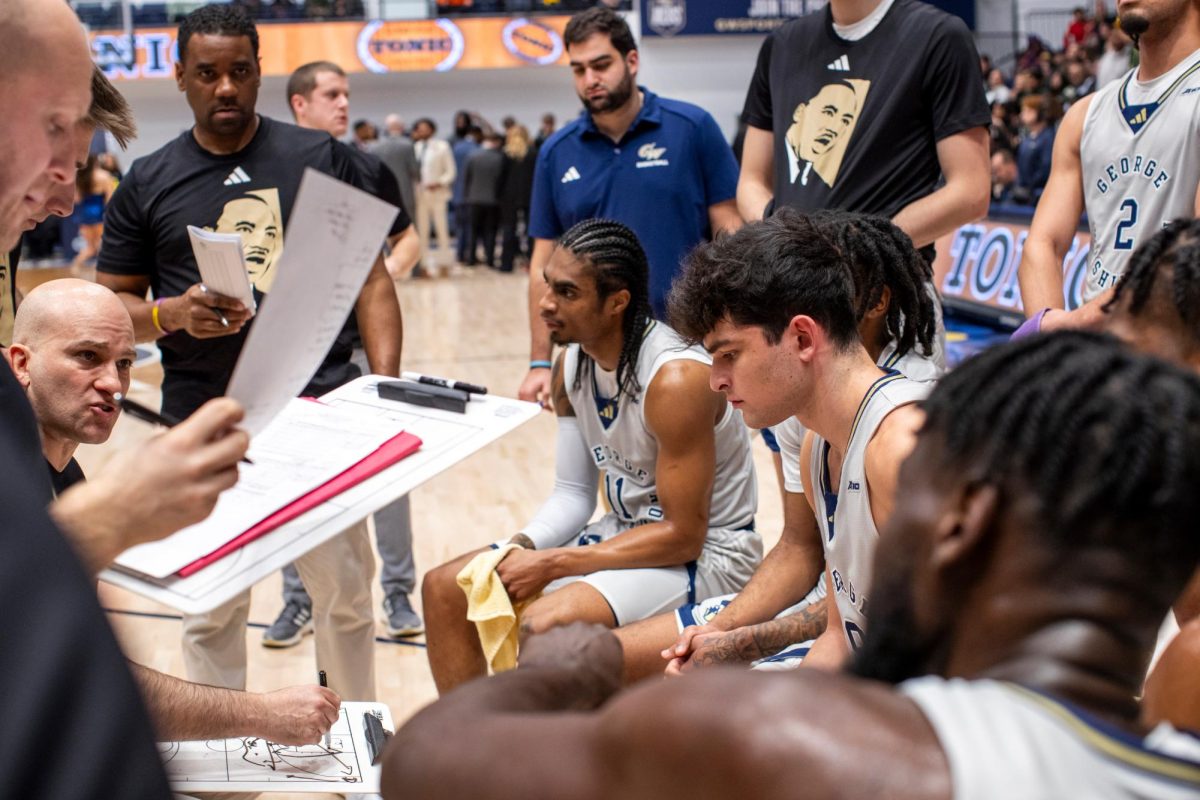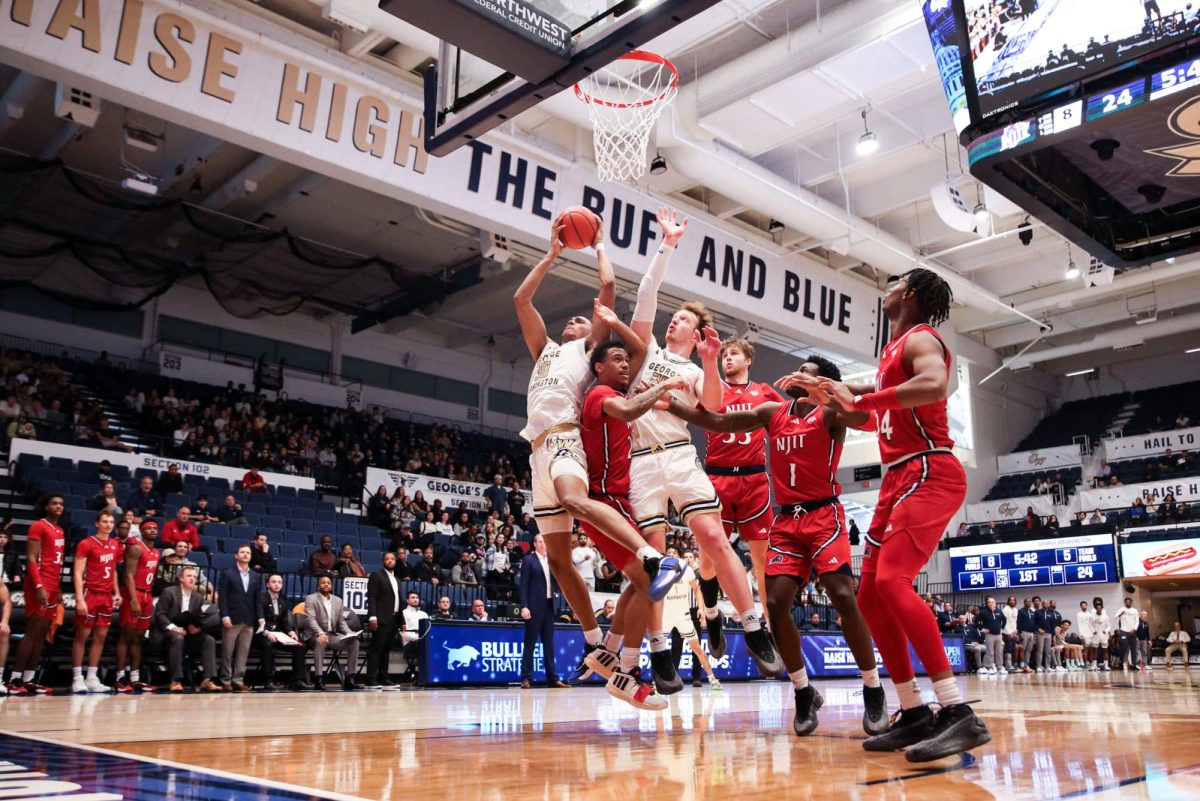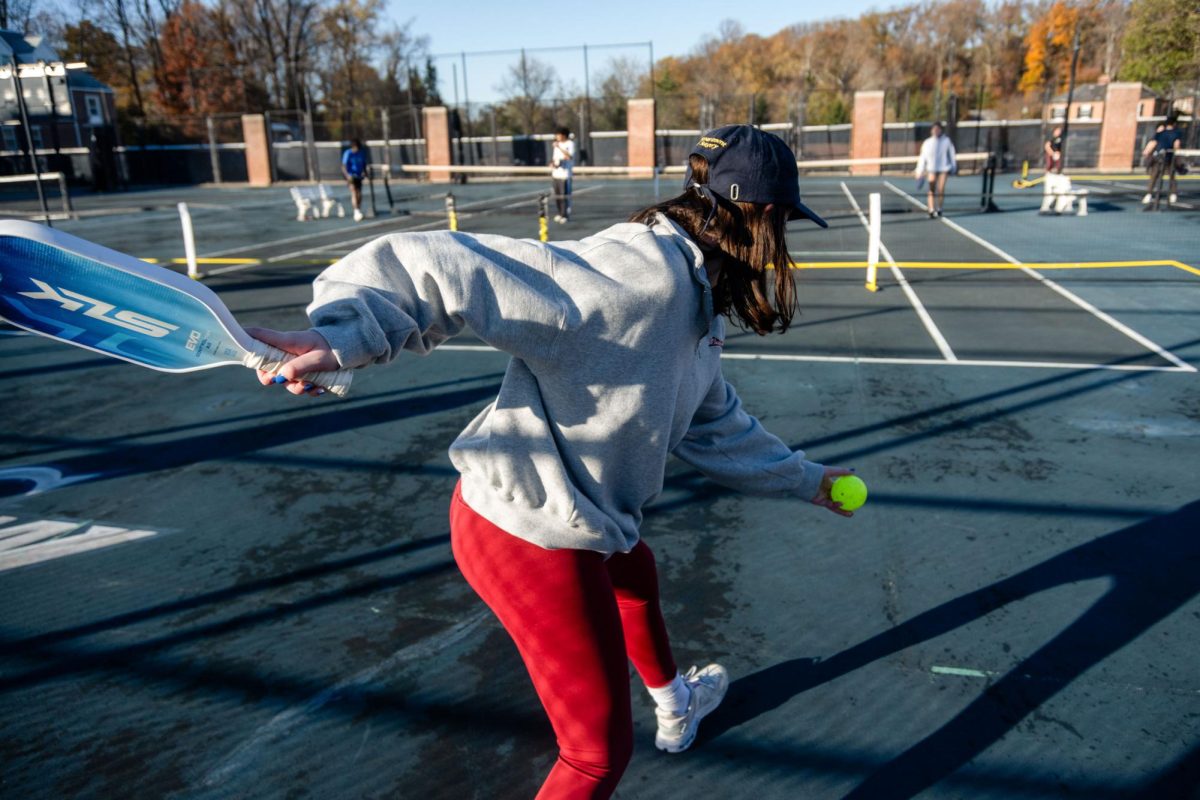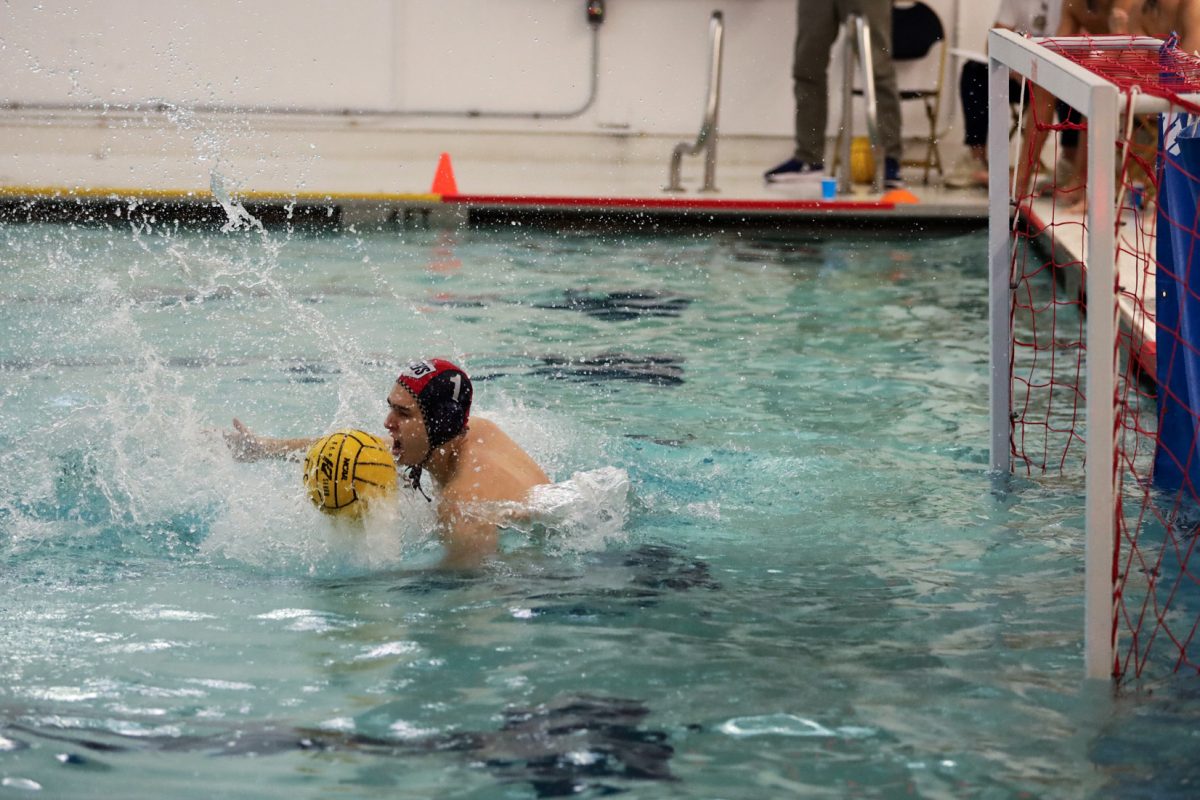After the hiring of the University’s first student-athlete mental health specialist this semester, athletes reported a need for additional mental health support from the Athletics Department.
The University hired Director of Student-Athlete Mental Health Jordan Butler this past January and launched a campaign last week to raise money for additional resources for athlete mental health, stating that the student demand for support is “much higher” than what current staff can maintain. Athletes said the University needs to hire more specialists, especially those of diverse backgrounds, to ensure that all athletes can use the department’s resources in the future.
Butler currently offers athletes drop-in chats and private therapy sessions as the designated mental health adviser for 390 student-athletes. The Athletics Department’s campaign, titled “Rev Up Mental Health” spans from May 15 to May 31 with the goal of raising $25,000 to expand mental health services at the University. A promotional campaign video for the fundraiser did not specify what the expanded services would consist of.
An Athletics Department official deferred requests to interview Butler to comments from officials in the campaign video. As of Sunday, the campaign had raised $1,018, about 4 percent of officials’ desired target, with more than a week left in its run.
“I think that athletes face unique stressors, whether that’s injuries, surgeries,” Butler said in the campaign’s promotional video. “But I also think that athletes handle it in unique ways, and they try to apply what has made them successful on the court, the pool or whatever their venue is, to major depressive disorder or other things and that is what can make things exponentially worse.”
Suicide rates among college athletes have doubled within the past 20 years, now standing as the second most common cause of death in university athletes. Male student-athletes experience higher rates of suicide compared to their female counterparts.
After Butler’s schedule filled up immediately following his January hiring — some students claiming an immediate appointment and others remaining on the waitlist for weeks — he launched additional drop-in hours to make his resources more widely available, athletes said. Since late January, Butler has hosted the drop-in hours in the Champions Club within the Smith Center for 90 minutes twice weekly.
“His caseload is full,” said sophomore soccer player Alana Beasley. “So, you just have to wait until his caseload is not full.”
Volleyball freshman Loukia Papadakos said she began meeting with Butler through one-on-one therapy sessions shortly after his arrival at GW, when she was sidelined due to a concussion and wanted to not only focus on her physical but also her mental health before returning to the court this fall.
Papadakos said she was initially nervous to met with Butler but continued to meet with him. She said she’s ultimately thankful for their conversations and their benefit to her well-being on and off the court.
“At first, I was like, ‘Wait, I really don’t know if I want to continue this,’” Papadakos said. “But then I realized that the personal growth that I’ve been making, and my being comfortable with feeling and talking about emotions, it’s just improved so much.”
Men’s basketball redshirt freshman Garrett Johnson said Butler spoke with his team shortly after he was hired, and said those conversations should happen among with other athletic teams at the University. The women’s lacrosse team also met with Butler this semester where he reviewed resources after being invited to speak with the team, one athlete said.
“When he talked to us, he gave us a pretty deep rundown of everything,” Johnson said. “So I think they should do that with every team at a minimum probably. They could probably make it a little more known that it’s there. I feel like that’s a good stepping stone at least.”
Butler’s hiring comes after Atlantic 10 competitors have appointed similar mental health specialists for their athletes. VCU employs a three-person department to assist their 435 student-athletes. George Mason appointed a licensed clinical psychologist that works directly with the Athletics Department in 2020. The year before, the Richmond Athletics Department onboarded a psychologist.
Tim Nicholson, a junior on the baseball team and the Student-Athlete Advisory Committee finance chair and baseball representative, said he has battled anxiety and depression since high school, which have been driving forces in his desire to seek expanded mental health resources at GW. He said the improvements he saw in his own mental health after receiving help from one-on-one sessions with specialists outside of GW emboldened him to advocate for other athletes to seek the support they need.
Nicholson said batting-focused sports like baseball or softball can be particularly strenuous on the health of athletes, due to the high scrutiny of batters’ solo performances each time they’re at the plate, which Nicholson said specialists should tackle individually.
“It would be nice to have some sort of specific tool that you can use to deal with that anxiety,” Nicholson said. “The problem is that it’d be hard to get interest in student-athletes needing this because the stigma around it being weird or not common.”
Sophomore track and field runner Andrew McCabe said he believes men are less open about struggles with mental health because of a stigma toward being vulnerable about their emotions, which he said GW’s therapists should help address. McCabe said more discussions as a team would also alleviate the negative outlook some men have toward discussing mental health.
“When it comes to serious problems, I feel like they get washed under the surface, and people just try and get by on their own,” McCabe said. “Whether it’s injuries, family emergencies, we just don’t really talk about it, or we don’t talk about it in a sense, where we’re reaching out for help. So I think then that can easily negatively impact your performance, not only in school, but in athletics, team and school.”
Some athletes said additional and more diverse hires would allow them to feel more comfortable speaking to someone of a different gender, race or other underrepresented groups, who would ensure their concerns didn’t go unaddressed or improperly handled.
“I definitely think people who used to be athletes and people who are of similar religion or race, sexuality, any of that, would help more groups that already feel marginalized, be seen in the mental health space, which is always needed,” Dara Reyblat, the SAAC president and a junior on the swimming and diving team said.
Beasley said as a queer woman of color who has struggled with her mental health, there are certain concerns she would feel uncomfortable addressing with a male psychologist, despite his qualifications.
“Even though Jordan was an athlete, he’s straight and white,” Beasley said. “I’m queer and black and a woman. I don’t necessarily want to disclose all of my problems to him, because he might not be able to understand all of them, just due to his positionality in society versus my positionality.”





